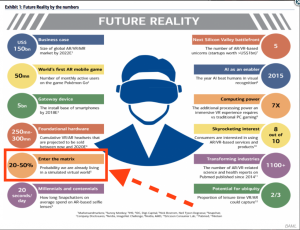The concept of a parallel universe or reality has been a theory, albeit far-fetched, postulated by some in the scientific community. The sci-fi Matrix trilogy by the Wachowski Brothers at the end of the 90s and the start of the 2000s, was arguably the most successful attempt at encapsulating what it might look like if such a parallel reality actually existed. But that was just a fantastical Hollywood movie and would seem worlds apart from what a Walls Street investor would be interested in to boost their profits. Not so fast. Because Bank of America Merill Lynch released a note to its clients saying that there is a 20-50% chance we might be living in a Matrix! Yes, it told investors that the world we experience as ‘real’ is actually just a simulation. The firm cites comments from Elon Musk, Neil deGrasse Tyson, and Nick Bostrom’s seminal paper on the issue as the basis for its 20%-50% view. Here’s BAML (emphasis added):
“Many scientists, philosophers, and business leaders believe that there is a 20-50% probability that humans are already living in a computer-simulated virtual world. In April 2016, researchers gathered at the American Museum of Natural History to debate this notion. The argument is that we are already approaching photorealistic 3D simulations that millions of people can simultaneously participate in. It is conceivable that with advancements in artificial intelligence, virtual reality, and computing power, members of future civilizations could have decided to run a simulation of their ancestors.”
BAML also notably highlights Nick Bostrom’s three probable scenarios for the human race, which are 1. extinction before reaching a “posthuman” stage, 2. reaching posthuman existence but not simulating evolutionary history, and 3. we are in the matrix already.
Reading Bostrom’s 2003 paper, however, makes clear we’d never really have access to full knowledge of any of these scenarios because, as Bostrom concludes, “Unless we are now living in a simulation, our descendants will almost certainly never run an ancestor-simulation.” The investment implications are certainly unclear, but one could argue that investors and cosmologists or theoretical physicists do deal in probabilities, so there is some common ground and interest….





































